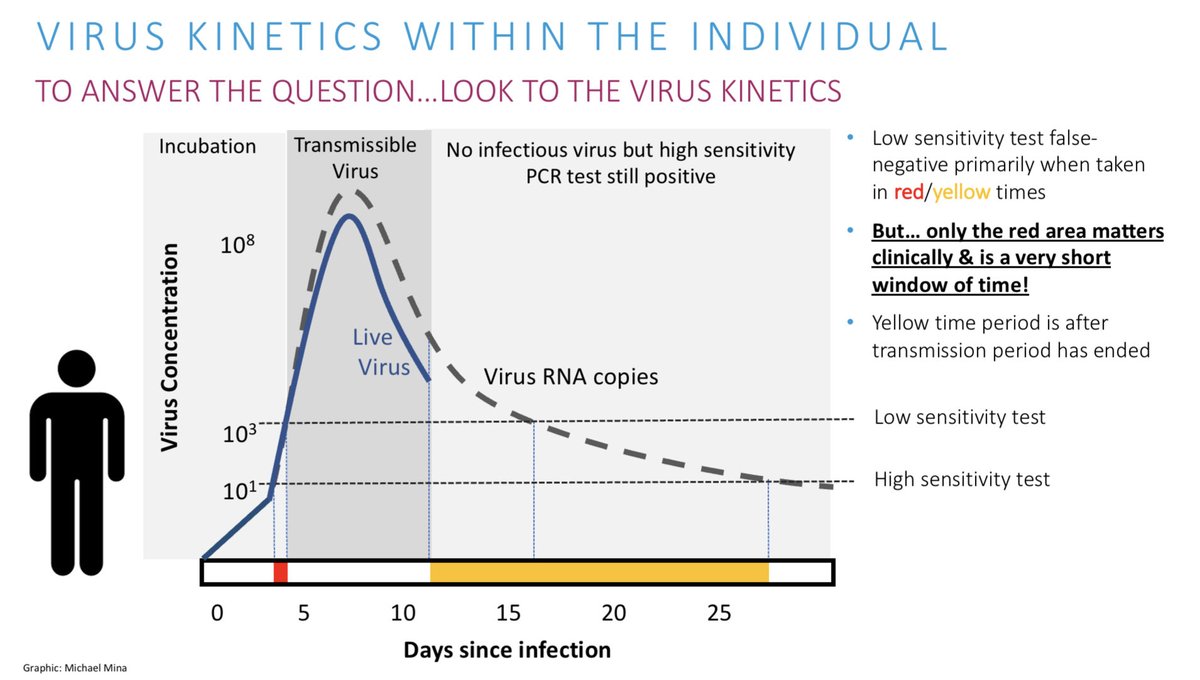
Frequent testing is needed to detect people early before infecting others. They must be highly scalable and for buy in, very convenient - i.e. home use
10M Rapid tests/day (i.e. antigen bc scalable / simple) can form the foundation to build back economy
theatlantic.com/health/archive…
10M Rapid tests/day (i.e. antigen bc scalable / simple) can form the foundation to build back economy
theatlantic.com/health/archive…
Frequent tests alone won’t be the end all be all of this pandemic. Not by a long shot. These can greatly reduce odds of transmission - when used en masse, odds of onward transmission (i.e. Rt) can plummet.
To work, also need huge social/economic safety nets, + masks/distancing.
To work, also need huge social/economic safety nets, + masks/distancing.
Although new administration will not officially start till January, we have options now. @JoeBiden and team led by @vivek_murthy can start now to engage manufacturing and begin planning/building these at scale w promise of payment once in office, as one example.
We’ll need (voluntary) reporting. Can start now to work with google/apple/ATT/Verizon to make voluntary reporting as simple as a text message.
Start talking to governors today about how to distribute and ensure equitable access, ideally paid for by government, not pocket.
Start talking to governors today about how to distribute and ensure equitable access, ideally paid for by government, not pocket.
And we absolutely need to ensure that anyone testing positive is guaranteed that they will not be out of a paycheck for staying home and isolating. This is an absolute must. The quicker we get the virus under control, the less and less this part will cost.
The ROI is huge.
The ROI is huge.
• • •
Missing some Tweet in this thread? You can try to
force a refresh





